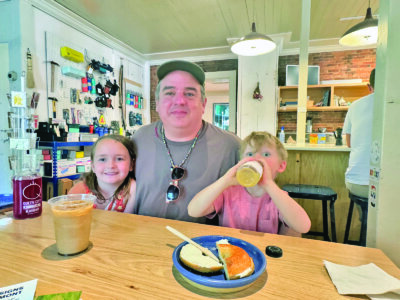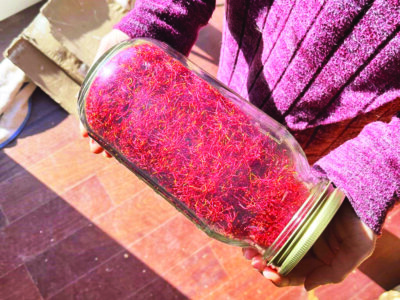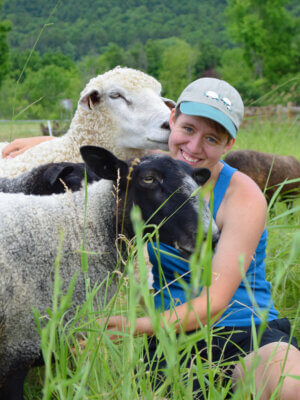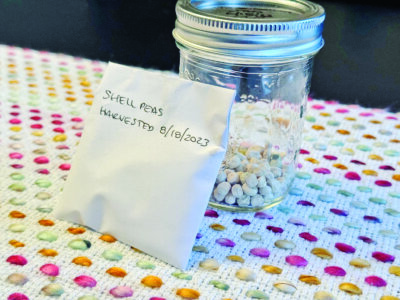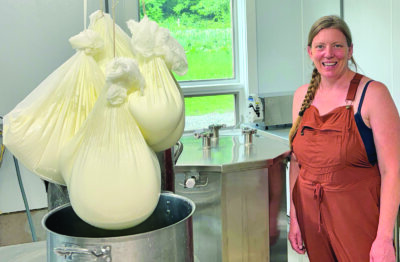Farming for four generations: Charlotte’s Titus family
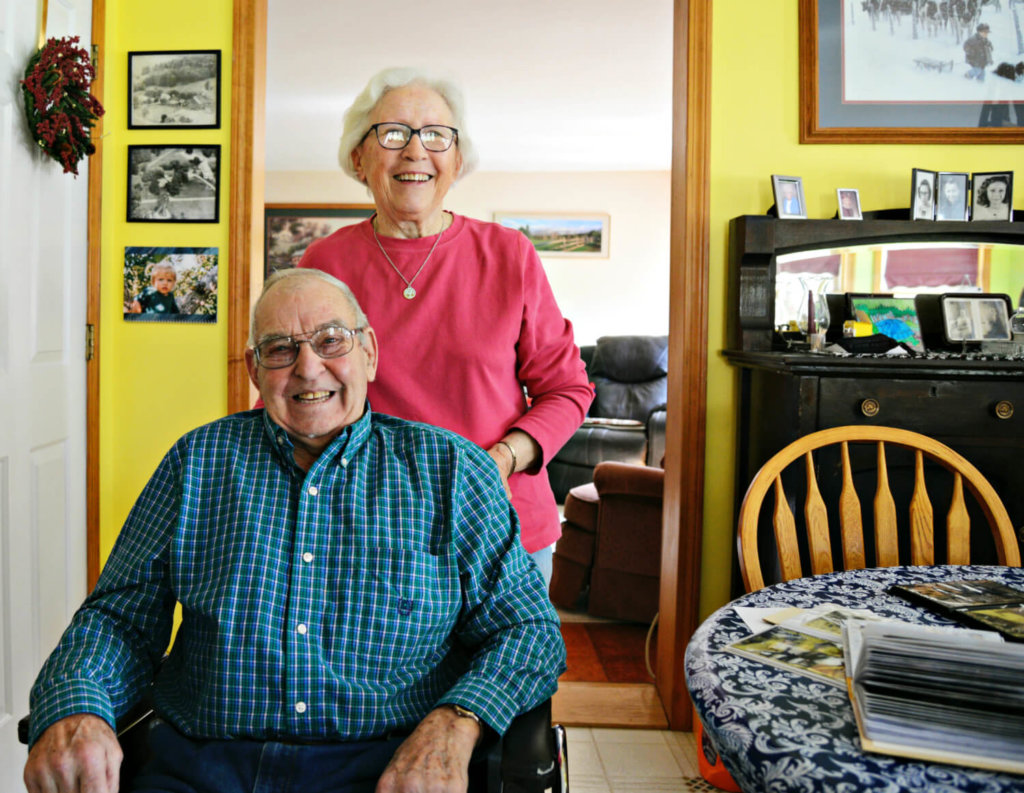
It was Bob Titus’s grandfather who came to Vermont from upstate New York to farm. “He brought all of his cattle over on the ferry … he had a kind of wanderlust,” is the way Bob’s wife, Bernice, tells the story.
The family left their farming life in Malone and settled in Stowe, where the land was rugged and rocky. Bob’s dad grew up farming there, and it’s where Bob learned to love the lifestyle. He tells story after story of the simple joys of living on a farm, with animals, making the most of what may have seemed like not very much, but in truth was a rich life and great way to grow up. “My brother and I used to go behind the barn and catch frogs then see which could jump further …. When I was six years old we would walk a mile to the Stowe Hollow School with the Adams sisters. We grew corn and beans that were canned; Dad sold logs and syrup, and we had dairy cattle,” Bob explains, “He would take wood to the general store in the village and trade for clothes and groceries.”
In 1958 Bob’s dad, Floyd, bought three hundred acres in Charlotte, on One Mile Road, thus moving the heart of the family farming industry to Chittenden County. This was shortly after Bob had returned east from South Dakota, where he had been stationed in the Air Force and, quite fortuitously, where he met and married his wife of 63 years, Bernice. “In 1957, as newlyweds, we lived in Stowe, then decided to return to South Dakota for a year.” That year turned into seven when Bob became the dairy manager for a 385-square mile farm in Aberdeen where grain, pigs, beef and dairy cattle were raised.
When they returned east, a family of four by now, Bob and Bernice bought a 200-acre farm on Spear Street for $48,000. “Every place was a farm back then,” says Bob. And everyone worked together and helped each other out. The Tituses raised their children, Jeff and Laurie, on the farm, but when Jeff died of leukemia in 2008, Bob and Bernice sold off their cows and auctioned some of their equipment. “The farm is a good place to raise kids, you get to be your own boss,” says Bob. There was a camaraderie among the neighboring farmers in those days. “We always helped one another out. Henry Dyke would get his haying done, then he’d be right there with his tractor helping us out. John Sheehan, George Roscoe … we’d all get together to spread the manure …”
In addition to raising dairy cows and chickens and the occasional pheasant, Bob bred and sold horses, too. “I just love a horse,” he says. “As a kid I’d climb the box and get on their back and go for a ride.” In the family photo album there are photos of the classic Vermont winter scene: horses hitched to a sleigh. Like all farmers, it seems, Bob and his family lived a life of equal parts hard work and fun. For every story of haying and milking there is one of childhood hi-jinx, riding ponies and calves. For every lament of how hard it is to earn a living farming, there is gratitude for the lifestyle it provides.
Bob was fortunate to have a brother nearby who could pitch in with the chores so that the Tituses could get away from the farm from time to time. “I’ve been to every state but four,” is how Bob tells it. During those years Bernice worked at Fletcher Allen in Burlington, and the two of them took advantage of the many travel bus tours arranged by the hospital: to Nova Scotia, New York City, the Deep South. And, too, they returned to South Dakota each year to see family. The difference between there and Vermont? According to Bernice: “When I first got here I couldn’t see anything because of all the trees … I couldn’t get my bearings!”
Is farming today anything like it was when Bob’s dad was farming? “The small farms keep dropping off,” Bob says. And the cows have a much shorter lifespan. “A cow could live for 13 years back then; now it’s three or four. Cows are made for grazing, now they keep them penned-in, they don’t live as long because they’re just milk machines.”
“The cows would know when it was time to come in to be milked, and they’d always return to their same stall. They had personalities.”
And, too, the land is getting gobbled up to build houses. “When I first came here you could sell three cows to pay the taxes (at $100 each). Not anymore,” Bob says.
Still, it’s clear that Bob and Bernice would not trade their farming life for anything. Their son-in-law, Peter, works the farm now, haying and sugaring, and the land is in trust so it can’t be developed. With three grandchildren and six great grands close by, Bob and Bernice enjoy their days of family activities.
With generations of farming running through their family tree, from upstate New York to Vermont and South Dakota, the Titus family has seen farming from the outside in and inside out. And they still love it!
“My whole life was the farm,” Bob says of his childhood, clearly a good and happy one.
Related Stories
Popular Stories
If you enjoy The Charlotte News, please consider making a donation. Your gift will help us produce more stories like this. The majority of our budget comes from charitable contributions. Your gift helps sustain The Charlotte News, keeping it a free service for everyone in town. Thank you.
Andrew Zehner, Board Chair




